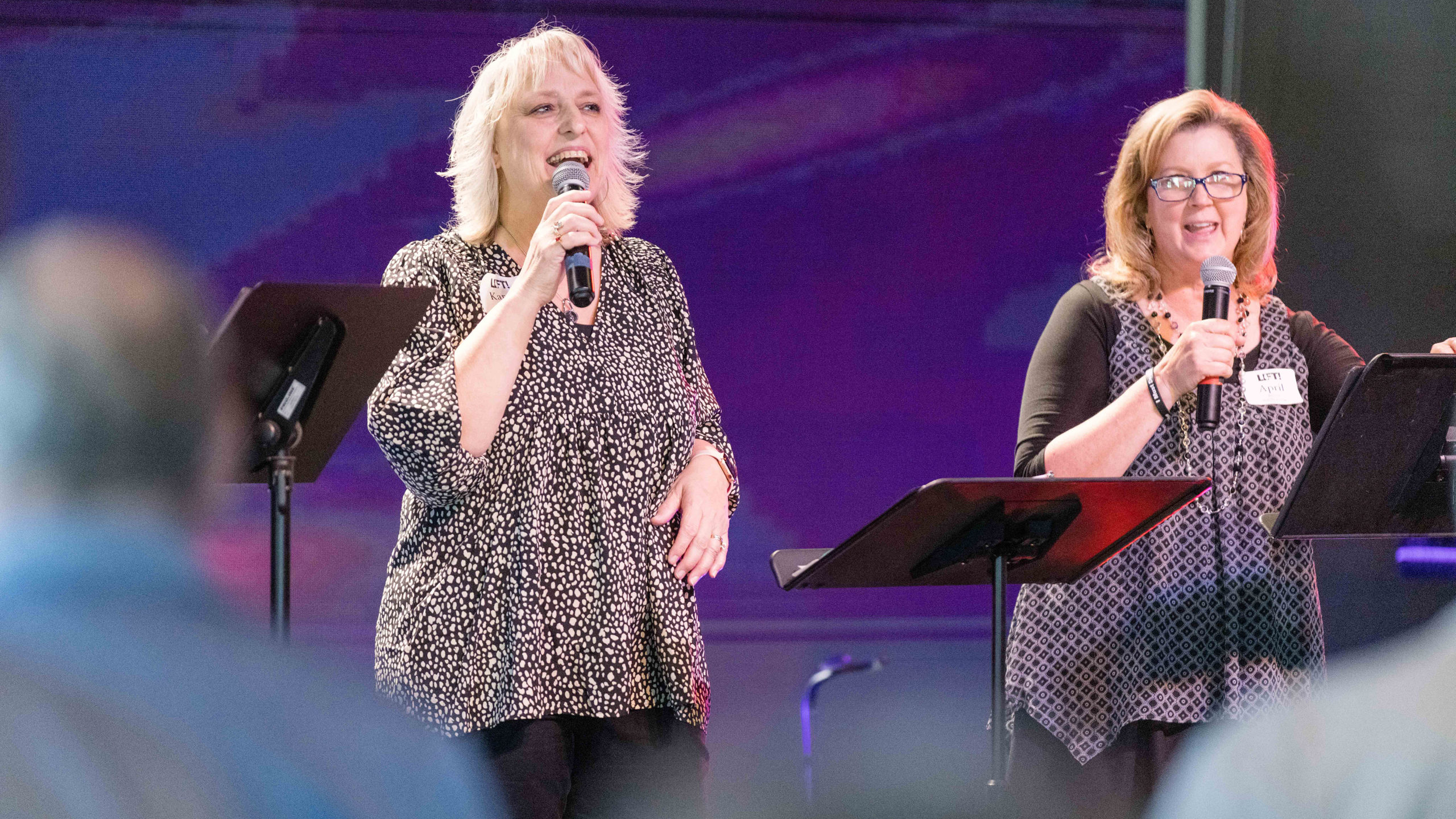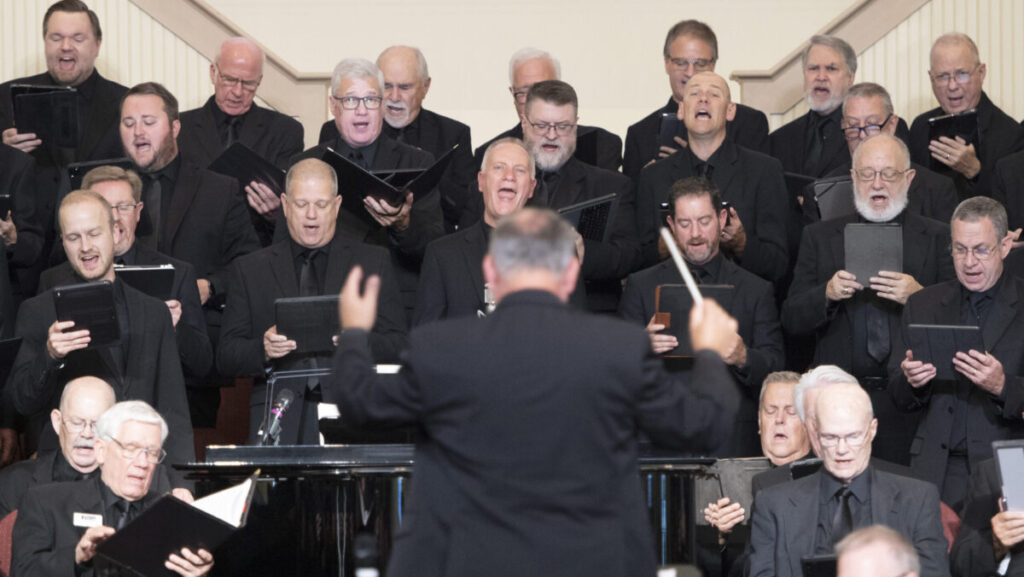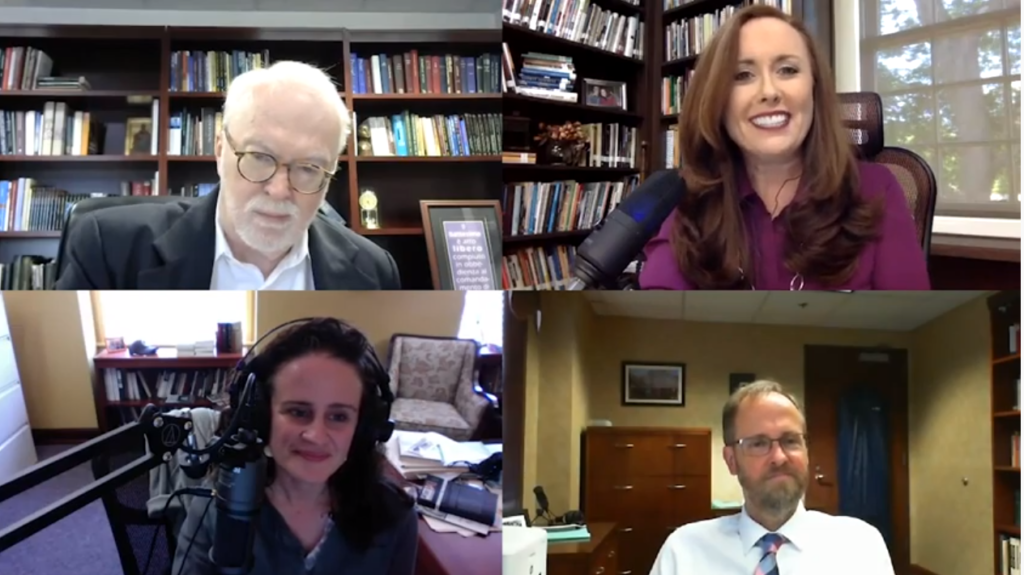One occupational hazard of ministry can be that it’s the minister’s “job” to lead worship, though he may not worship himself.
“Sometimes we enter the worship area looking for those people we need to see about matters, and we may forget who we should be looking for most of all,” said Karen Gosselin, music specialist in the office of worship leadership and church music for the Alabama Baptist State Board of Missions.
“Of course we know God is not confined to one place,” she added, “but He has to be our primary focus in worship whether we’re on the platform or in the pew. This is our task, and we must do it well.”
Gosselin was coordinator for the second annual “Lift!” conference, held at First Baptist Church in Trussville April 28. Two worship experiences and eight breakout sessions were available to participants.
Daniel Wilson, director of the SBOM evangelism office, was keynote speaker, using Isaiah 6 to talk about the prophet’s “call” experience.
“It was a trying time for the nation when King Uzziah died,” Wilson noted. “He’d been king for 52 years. Can you imagine an American president who served ably since 1970? The nation was grieved and troubled when he died. Isaiah sought God and had a unique worship experience.”
Wilson noted the prophet felt conviction when he realized his sinfulness in the presence of God’s holiness.
“He said he was ‘undone,’ or as we might say, ‘done for,’” Wilson explained. “But God cleansed him and prepared him for a life of service. Isaiah felt a debt to God and remained faithful to Him despite the hard times in which he lived. Genuine worship leads to a life of service.”
Energy and purpose
Matt Rouse, minister of music at First Baptist Church in Decatur, led a conference called, “Renewing Your Energy and Purpose for Ministry,” illustrating with a pyramid his understanding of vocational ministry.
“Perspective is the ground floor,” Rouse explained. “God speaks to us, and we’re called to serve. And every minister I know would continue to live out this call through service even if the present ministry situation changed.”
The next level is commitment, followed by relationships and trust.
“We work with people, and we must spend time with them,” Rouse said. “They learn to trust us and believe we want to lead them in God’s will.
“And energy and passion are the top level, and this comes from and is fueled by the other foundational principles. But relationships and trust can be the place our energy and passion get short-circuited.”
He asked the group for examples of “passion killers,” with responses ranging from poor staff relationships and jealousy when others are brought on board to power-plays and overwork.
“We must spend quality time with people, build friendships, empower and trust them to do ministry and seek to have good communication in our churches,” Rouse said.
Heart of worship
Rob Jackson, director of the SBOM office of church health, led a seminar titled, “The Heart of Worship,” noting worship isn’t about a place or a building.
“No carpet ever brought someone to Christ, and no wall ever encouraged the discouraged,” Jackson declared. “A building is a tool, not an object of worship.”
He sees no correlation between worship style and church growth, he said.
“One of the fastest-growing churches in this area has a liturgical worship,” he noted. “Nor is worship related to ‘being cool’ with skinny jeans or black lights. Worship is about God.”
The Old Testament word for worship means to prostrate oneself before God, Jackson added.
“This speaks of submission and humility. But unlike the sacrifice given in the Old Testament, the New Testament teaches Christ is our sacrifice, so we sacrifice our lives to Him in gratitude.”
It is common for ministers to “go through the motions,” doing what is expected of them with their minds in neutral, Jackson lamented.
“But we must practice personal worship in order to prepare ourselves for public worship.”
Jackson described his daily worship routine first thing every morning.
“I think it’s important to have a time and a place to seek God every day,” he explained. “And we must lead our family in worship at home. We also can lead our staff to worship in multi-staff churches, and we can hold one another accountable by asking what we’re reading and learning from God’s Word.”
“I believe we’re more effective in leading worship if we begin at home,” Jackson said.
Other breakouts dealt with developing staff relationships, instrument and vocal mixing, and software for media ministries.
Gosselin noted the conference had a “mix” of ministers with various titles and responsibilities, and one purpose of the event was to provide worship time for staffers.
“I’d like to include more bivocational ministers, so we might look to an afternoon or a two-day event in the future,” she said. “This is our second year, so we’re still learning and growing.”
For more information contact Gosselin 800-264-1225 or kgosselin@alsbom.org.






Share with others: